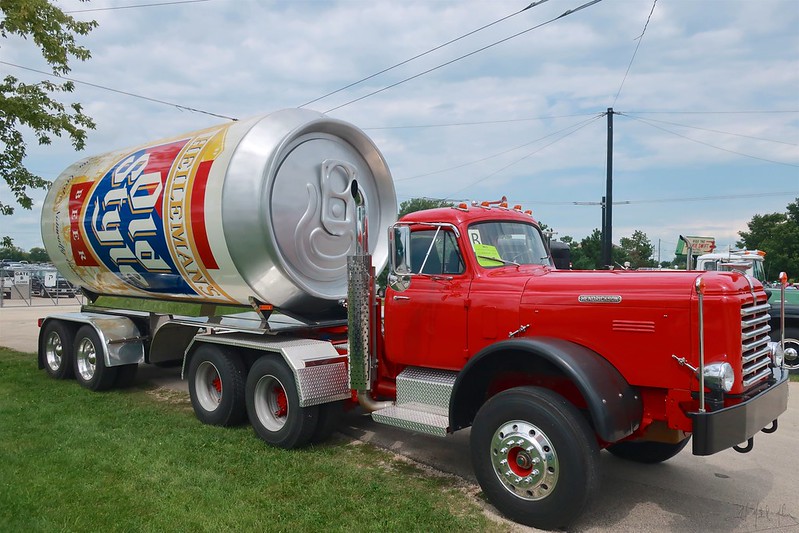“Self-Distribution” of Beer in Florida – 2019

Outside the traditional distribution network, there are only a few ways Florida breweries can distribute their products.
Option 1: Transfers Among Affiliated Brewing Facilities
Beer in limited quantities can be transferred directly among licensed brewing facilities that have affiliated ownership or control. See Florida Statutes Section 561.221(2)(c). For this purpose, either the same company must hold the manufacturing license in both the transferring facility and the receiving facility or the license-holding companies for both facilities must be affiliated through common ownership or control. For example, if Joe Beer owns and controls a majority of the voting interest in BeerCo A, LLC and BeerCo B, LLC, then the two companies are affiliated and beer can be transferred directly between their brewing facilities, subject to the quantity limit.
The amount of beer that one brewing facility can transfer to an affiliated brewing facility is limited to the yearly production amount at the receiving facility. For example, if the yearly production amount produced by BeerCo B is 100 barrels, then BeerCo A can transfer 100 barrels to BeerCo B within the same year. The statute does not specify how or when the yearly production amount of each brewing facility is required to be determined.
Option 2: Sales to an Affiliated Distributor
Sales to a licensed distributor would not be so onerous to a Florida brewery if that distributor was an affiliate of the brewery (that is, under common ownership or control). However, licensed beverage manufacturers (and their owners, officers, directors, agents and employees) are generally prohibited from having a financial interest in a licensed distributor. A narrow exception to this rule is provided in Florida Statutes Section 563.022(14)(c).
Under the statute, a beverage manufacturer (or a person affiliated with the manufacturer) is permitted to invest in a new distribution company as a limited partner. For example, Joe Beer can provide all of the financing for the start up of BeerCo Distributing, LP, provided that Joe is a limited partner of the company. Traditionally, limited partners only have very limited rights in the management and control of a limited partnership. BeerCo Distributing, LP must be managed and controlled by a general partner who is unrelated to Joe Beer or the BeerCo manufacturing companies. Note that the annual business fee paid to the Florida Division of Corporations for maintaining a limited partnership–$1,000–is much higher than the annual business fee for an LLC or corporation–$125 and $150, respectively.
Joe Beer can hold his limited partnership interest in BeerCo Distribution, LP for no longer than 8 years. Within 8 years of the time that a licensed manufacturer or its affiliate acquires its limited partnership interest in a distribution company, the LP interest must either be redeemed by the distribution company or transferred to a person or company that is not affiliated with the licensed manufacturer.
Option 3: Sales to a “Friendly” Distributor
While licensed breweries are limited to selling their products at wholesale only to licensed distributors, breweries are free to choose the licensed distributors with which they do business (at least until they sign a perpetual distribution agreement). Likewise, any person–other than a licensed manufacturer, the affiliate of a licensed manufacturer, or the officer, director, agent, or employee of a licensed manufacturer–may hold a Florida distribution license, provided they meet the licensing requirements. Therefore, Joe Beer can work with a licensed distributor that is owned and controlled by a non-affiliated, but friendly, person.
The list of non-affiliated, but friendly, persons, is long and starts with family and friends. For instance, Joe Beer’s spouse, Jill Beer, can own a licensed distributor, provided that Jill Beer is not an owner, officer, or employee of BeerCo A, LLC or BeerCo B, LLC. Likewise, Joe Beer’s brother, sister, parent, in-law, or friend can own a licensed distributor. In this situation, Joe Beer can even provide financial support for the friendly non-affiliated distribution company as a limited partner.
Before talking to his spouse, family member or friend about starting a distribution company, Joe Beer should understand the licensing requirements for a distribution company. In addition to the requirements that apply to anyone who holds an alcoholic beverage license in Florida, the operating requirements for a licensed distributor provided in Florida Statutes Section 651.411 are significant:
- Must have exclusive control of a warehouse or have dedicated space within a public warehouse;
- Must have enough warehouse space to hold at one time products accounting for 10% of annual distribution volume or $100,000 in value, whichever is less;
- Must actually hold at all times products accounting for 5% of annual distribution volume or $100,000 in value, whichever is less; and
- Must sell products to licensed vendors generally rather than a selected few vendors.
Do you have questions about the distribution options for Florida breweries? We’d love to discuss it with you. Contact us at contact@brewerlong.com to schedule a consultation with a beverage attorney.
Because we’re attorneys: This blog post is provided on an “as is” and “as available” basis as of October 6, 2019. We disclaim any duty to update or correct any information contained in this blog post, including errors, even if we are notified about them. To the fullest extent permitted by law, we disclaim all representations or warranties of any kind, express or implied with respect to the information contained in this blog post, including, but not limited to, warranties of merchantability, fitness for a particular purpose, title, non-infringement, accuracy, completeness, and timeliness. We will not be liable for damages of any kind arising from or in connection with your use of or reliance on this blog post, including, but not limited to, direct, indirect, incidental, consequential, and punitive damages. You agree to use this blog post at your own risk. Regarding your particular circumstances, we recommend that you consult your own legal counsel–hopefully BrewerLong.

